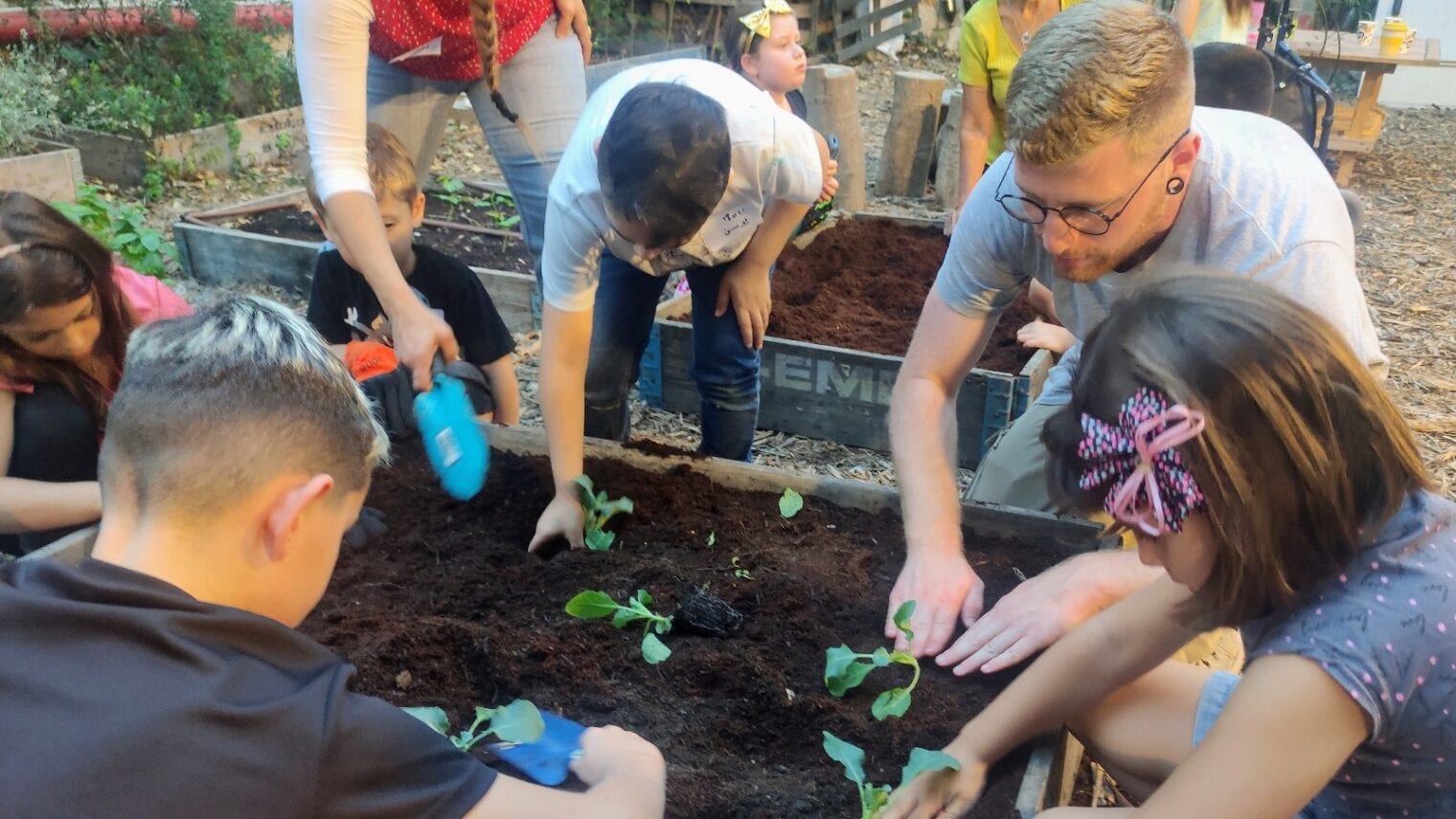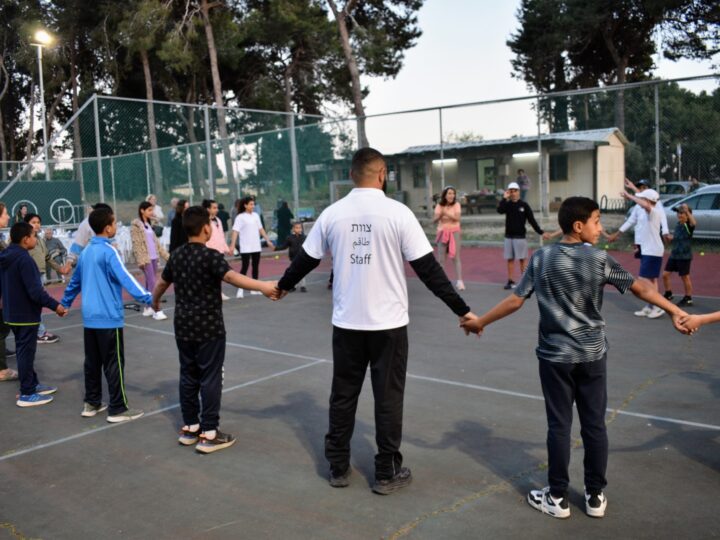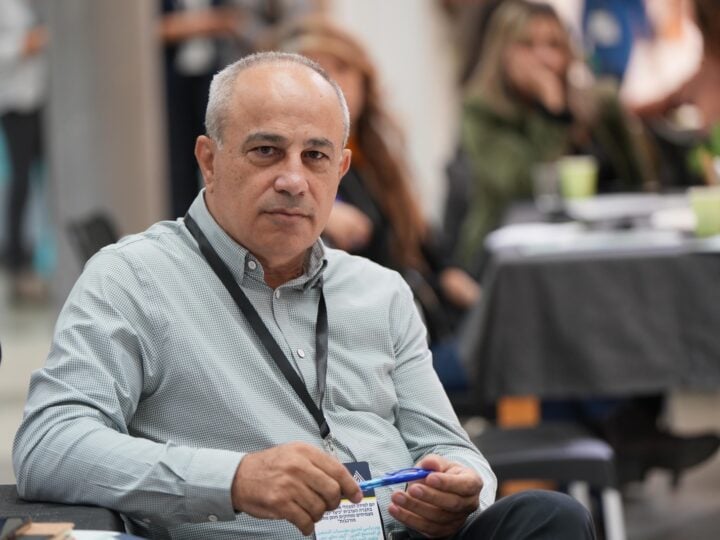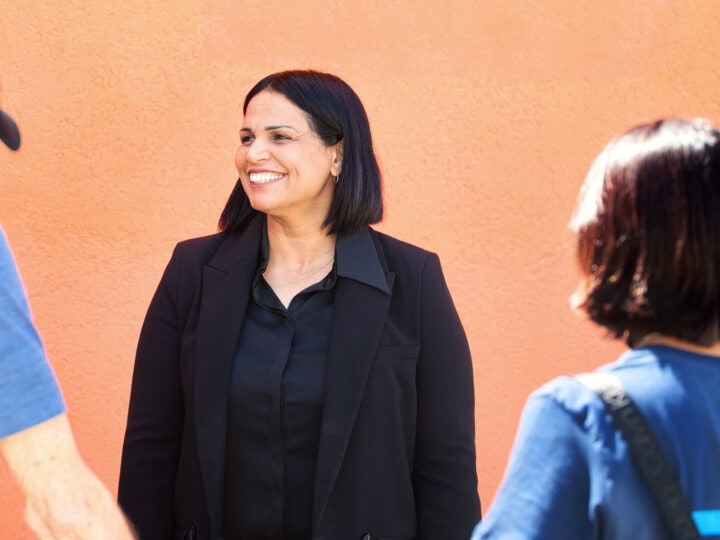From 7 to 10 o’clock every night since the start of the current war, a couple of civilian patrol teams cruise the streets of Nof HaGalil in northern Israel.
Inside each car with a flashing orange light on top are two Arab residents and two Jewish residents. They are determined to keep the peace in their mixed city of about 42,600.
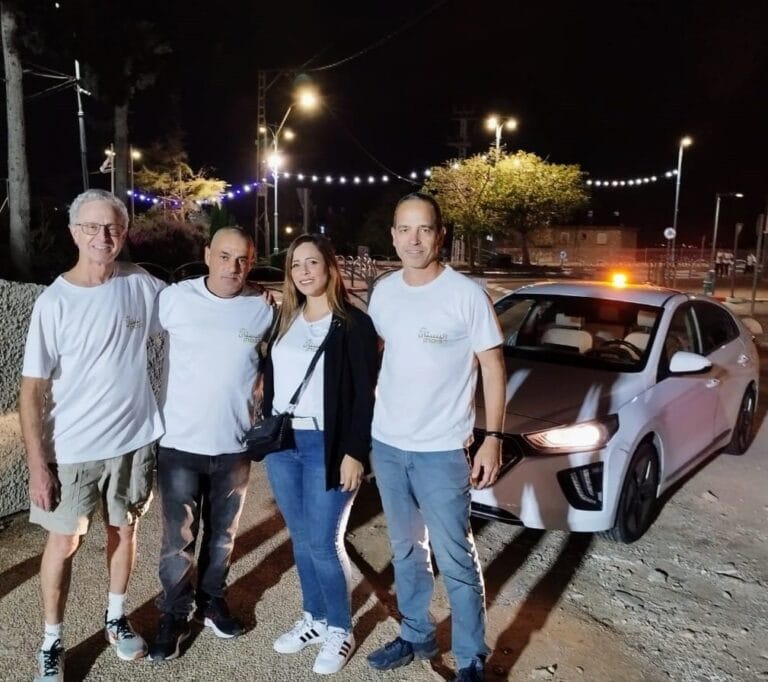
Located just north of Nazareth, Nof HaGalil prides itself on friendly relations between its Jewish majority and its approximately 30-40 percent Muslim and Christian Arab population.
The patrol teams – volunteers range in age from 30 to 75 — know that war could bring out any tensions bubbling below this peaceful surface.
War doesn’t discriminate
War threatens not only Israel’s Jewish majority but also its Arabs — from Bedouins in the south to Druze in the north, from Muslim and Christian Israelis to residents of Palestinian Authority-controlled territories.
Missiles and terrorists from Gaza don’t discriminate between ethnicities or faiths.
But within that indiscriminate danger lies another potential danger: fears, prejudices and differences in outlook, opinion and allegiance.
In the May 2021 conflict with Gaza, these differences ignited deadly violence in mixed cities such as Acre and Lod. The civilian patrol in Nof HaGalil monitors for signs of anything similar developing these days.
“We have had no incidents that need reporting to the police. The streets are quiet and we hope and pray it stays that way,” says Dan Segal, one of the founders of the five-year-old Bustan (Orchard) initiative in Nof HaGalil run by the nonprofit Tikkun Center for Gathering, Education, and Social Change.
Bustan grew out of the warm feelings engendered by the Sukkah of Hope that local Arab dentist Khalil Bakly and his wife, maxillofacial surgeon Reem Bakly, built at their Nof HaGalil home for the Jewish holiday of Sukkot in 2017. All residents were welcome.
“Over 1,000 people came to my home on that holiday,” Khalil Bakly tells ISRAEL21c.
“I understood at that moment that we Arabs and Jews have a big potential for working together. We started with two Arabs and two Jews, and then decided to form an organization later called Bustan. Today, hundreds of people in Nof HaGalil are taking part in our activities.”
A shared city
Segal says the vision of Bustan is to transform Nof HaGalil from a mixed city to a shared city.
“A shared city is where positive daily interactions between Jews and Arabs occur, where cultural resources are distributed fairly, and there is a shared feeling of pride and wellbeing,” he explains.
“We also seek to drive conceptual changes regarding multicultural society. We develop shared civil leadership, introduce multiple occasions for encounters for Arabs and Jews in our city, and act against racism.”
Bustan sponsors indoor and outdoor events focused on art, music, hiking, sports, archeology, female empowerment, language courses, nonviolent communication, theater, emergency response courses, leadership training and more.
“We have nearly 1,000 individuals participating in our activities yearly and about 100 committed activists and volunteers,” says Segal.
“We are planning stress-relieving activities during this time, as well as a social-media campaign to be focused on messages of unity and cooperation. Around the city, you’ll see huge billboards about unity but they’re only in Hebrew and we want them in both languages to show we are together in this.”
Interactions in and out of the car
The nightly safety patrols have raised general awareness of Bustan’s urban community network.
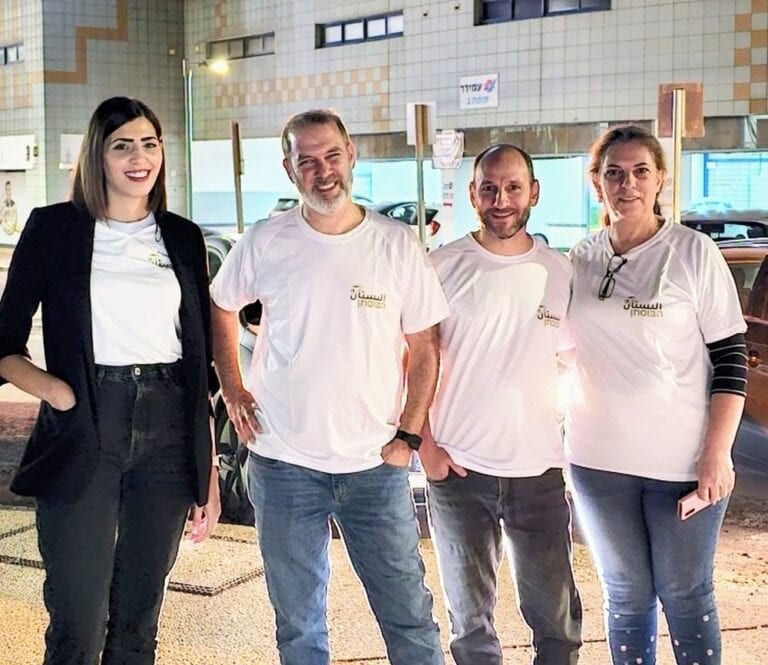
“When we see a group of people as we’re driving, we stop and get out of the car and speak to them to explain what we are doing and the purpose of the Bustan,” says Bakly.
“We ask them their feelings, we ask if they are afraid, and would they like to join us. Some people already know about our activities. If not, we explain more and give them a cup of tea or coffee and biscuits.
“We want to encourage them to feel safe in our city and understand we are Arabs and Jews together in each car.”
A sense of security for all
Segal says these interactions between Bustan members and the public are just as important as the monitoring.
“People see we are a mixed team and have trouble understanding why. This is part of changing outlooks for a shared society. We believe that what we do gives a sense of security,” he says.
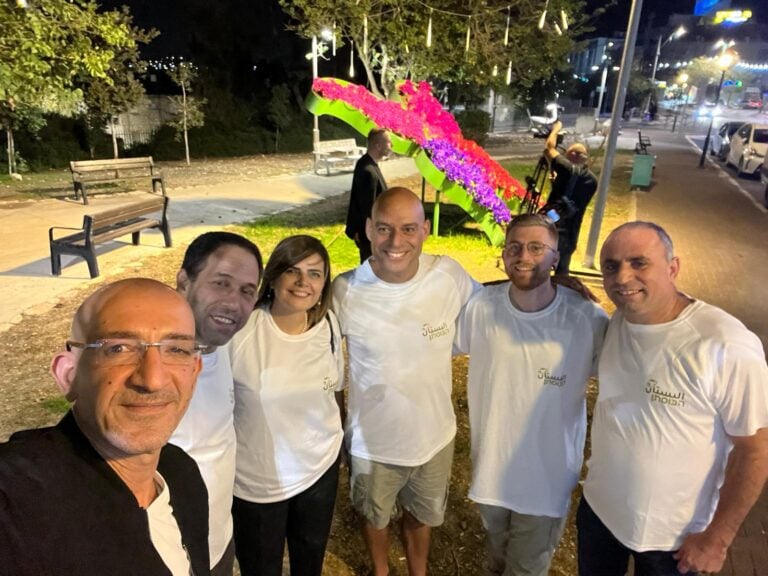
“The other thing is interactions that take place in the car among our volunteers. Some of the people didn’t know each other before. We have had dozens of people joining Bustan just for the patrols – it’s been a great way to recruit new members,” Segal adds.
“Last week we had an activity for families in the community garden. Many who didn’t know about us before joining the patrol came to that activity too.”
Segal says Bustan also is committed to fostering dialogue between local leaders of different religious communities to establish greater trust.
Some 70 Nof HaGalil residents attended a first-aid class recently offered by Bustan with the municipality and Magen David Adom.
Segal says the group has “a track record of establishing partnerships between Jewish and Arab residents around emergencies” and stands ready to mitigate any negative consequence to the war.
“We will react to any outbreak of violence by visiting victims of racism or violence, to publicly express solidarity with them as we did in May 2021,” he vows.
For more information, click here.




